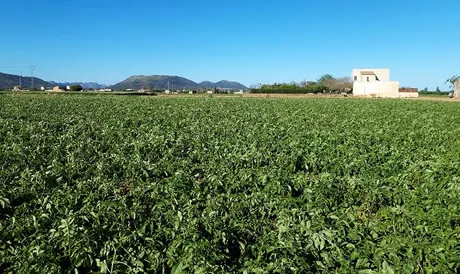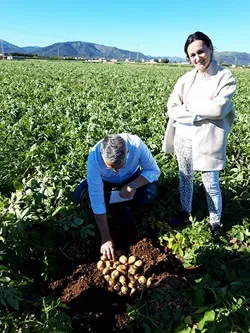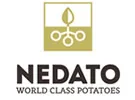"We are a small-scale packing company. For our buyers, we, therefore, try to pack Dutch products for as long as possible. Generally, we are able to do so until mid-June," says Wim van der Ree. He is the Director at Nedato, a Dutch potato cooperative.
"However, the Dutch season will be over considerably sooner this year. This is due to the lower yields. Nedato can probably continue with the old harvest of floury potatoes for about a month. But the end of the waxy and red potato stocks are in sight."

"Many European countries, not only the Netherlands, are running out of table potatoes. These include France, Spain, and Germany. This situation is certainly exceptional for the beginning of May. It means the new harvest of Mediterranean potatoes will be in store shelves earlier than usual."
"For example, for waxy potatoes, we already switched last week. We normally only do this from week 20. After all, waxy potatoes do not store well for extended periods. And, in the Netherlands, we do not yet have the varieties that can be stored until the end of June," says Wim.
 "There is more demand for the new harvest and prices are high," he continues. Last week, he visited his Spanish suppliers. "We work with fixed cultivation partners overseas on a regular basis. These partners are in Egypt and Israel."
"There is more demand for the new harvest and prices are high," he continues. Last week, he visited his Spanish suppliers. "We work with fixed cultivation partners overseas on a regular basis. These partners are in Egypt and Israel."
"They are also in the Spanish cultivation regions of Mallorca, Murcia, and Andalusia. The harvesting dates in these regions do not differ much. But we chose to use potatoes from these three regions as a means of risk diversification."
"We saw nice plants with good quality and high yields. Andalusia might even start a week earlier. A run will occur in imports. This run is due to the empty potato market. This run will offer prospects for the upcoming Dutch harvest," Wim explains.
"Spain did not plant any extra potatoes this year. They will, therefore, not be able to make up the shortfall. This situation counts for Israel and Egypt too. Germany is the first country that can compensate for the shortages. But they can do only so from mid-June. This means we will certainly have limited supplies until then."
"Premium potato prices are at the top end of the market. There is a price-stable mood. This offers potential for the first potatoes from Tholen. These will be on the market soon. The potatoes still have some growing to do here and there. The recent rains have, however, surely been good for the plants. Conditions are certainly not bad," Wim concludes.
 For more information:
For more information:
Wim van de Ree
Nedato
48 Jan van der Heijden Street
3261 LE Oud-Beijerland, NL
Tel: +31 (0) 186 645 945
w.ree@nedato.nl
www.nedato.com
